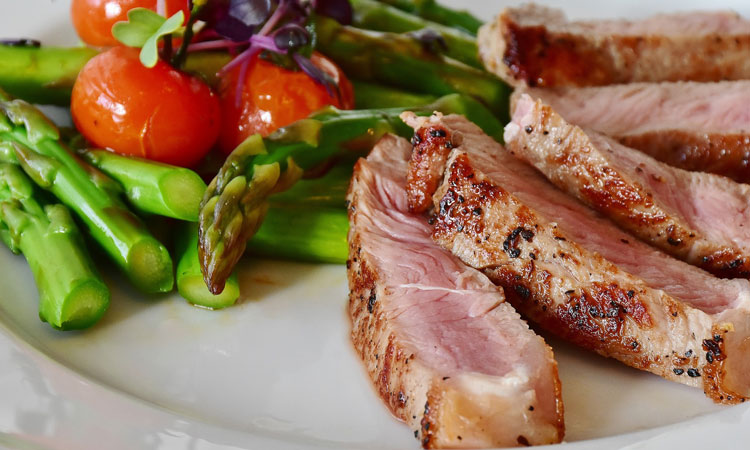Healthy eating is a skill. Just as it’s not possible to become a concert pianist in one day, nobody can choose to start eating healthily “overnight”. Healthy eating takes knowledge, practice, and patience.
Instead of taking the time to learn and make healthy eating practices a habit, many people choose an alternative route generally labeled as dieting. This is not to say that a particular diet does or does not have potential health benefits. However, what I do want to make clear is that diets in themselves are not the key to healthy eating.
Healthy eating is an approach that includes giving your body what it needs at a particular time, with the realization that your body may have different needs at different times. Dieting, on the other hand, places restrictions on what you eat regardless of your actual needs at any given time. This approach is very different from that of healthy eating as it is based on the assumption that one particular diet is “always” healthy for all people all of the time.
Temporary dieting
In general, temporary diets are implemented by significantly decreasing the amount of food eaten for a specific amount of time with the intent of losing weight. From a psychological perspective, this type of diet is basically a way to punish the body for being “bad” (i.e. overweight). It doesn’t mean that being overweight is not a problem. However, temporary dieting is often a response to compulsive eating, which is a psychological problem. In such a case, fighting the body on the physical level is not likely to succeed. Additionally, temporary dieting is not a long-term solution, does not respect the needs of the body, and does not lead to healthy eating habits.
Lifestyle diets
Certain lifestyle diets such as vegetarianism and veganism are based on ideals rather than health. In this case, it is the idea that eating animals and animal products is not humane, or at least not respectful of life in general. Furthermore, there is anecdotal evidence to suggest that such diets can be healthier than nonrestrictive diets. But following such a diet for health purposes is placing the cart before the horse. I’ve known people who claim they are eating healthily because they are vegetarian or vegan, but such thinking can be delusional. For instance, as a vegan I could choose to eat potato chips all day long, but the fact that I am following a vegan diet does not mean that I am eating healthily. Rather, what I am doing is slowly killing myself under the pretext of being kind to my fellow creatures.
“Fad diets”
The term “fad diet” is my label for any rule-based diet not based on religious or idealistic principles. Such diets include the Atkins diet and Keto diet. The “downfall” of all these diets is the same: they are based on rules instead of real-time personal needs. This isn’t to say that such diets cannot be healthy; however, it would be naïve to suggest that such diets are healthy for all people all the time.
What is particularly dangerous about fad diets is the potential for disempowerment. In other words, it’s easy to fall into the trap of thinking that if you just stick to a particular diet, you are eating healthily. There are potential problems with this, including:
- Some fad diets are quite complicated, which in itself leads to issues. For example, there is a chance that you may think you are following a particular diet, but actually aren’t in reality. Or you may be following a particular diet as much as you deem practical, but not to the extent that any significant benefit is gained.
- Following a fad diet puts an emphasis on learning the rules of the diet instead of gaining knowledge of nutrition in general. In contrast, learning about general nutrition will help you discern whether or not a particular diet is actually based on sound principles. Otherwise, you will potentially feel lost in a sea of fad diets; many of which seem to directly conflict with each other. Without personal knowledge of nutrition, you are blindly choosing a diet and relying on “faith” that this particular diet is healthy for you, as opposed to all other alternatives.
In the end, you know what is best for your body. It is so easy to give another responsibility; it gives you someone else to blame when you are not satisfied with the results. But this approach simply doesn’t work. Your health is your responsibility, so taking ownership of your health is the first step towards living a truly healthy lifestyle.
How to empower yourself:
- Learn basic nutritional information that you can use verify the validity of various diets.
- Respect that your body is different that everyone else’s and that you will have different nutritional needs at different times in your life.
- Listen to your body: take the time to learn what feels right and what doesn’t. Do certain foods make you feel bad? What foods give you energy? What foods “drag you down”? Are certain foods harder to digest? Be inquisitive.
- Experiment with your diet: what happens when you eat less meat? How do you feel when you eat less carbs? What if you stop eating sugar for a day? Or wheat? What if you don’t eat carbs for breakfast? Or if you don’t eat breakfast at all? Never assume that you know the answer. I personally remember how surprised I was to learn that not eating breakfast gave me more energy (because my body wasn’t digesting food in the morning). Maybe it will be the same for you, but maybe it won’t. The main thing is: don’t let another’s beliefs, rules, or “common knowledge” override your personal experience.

